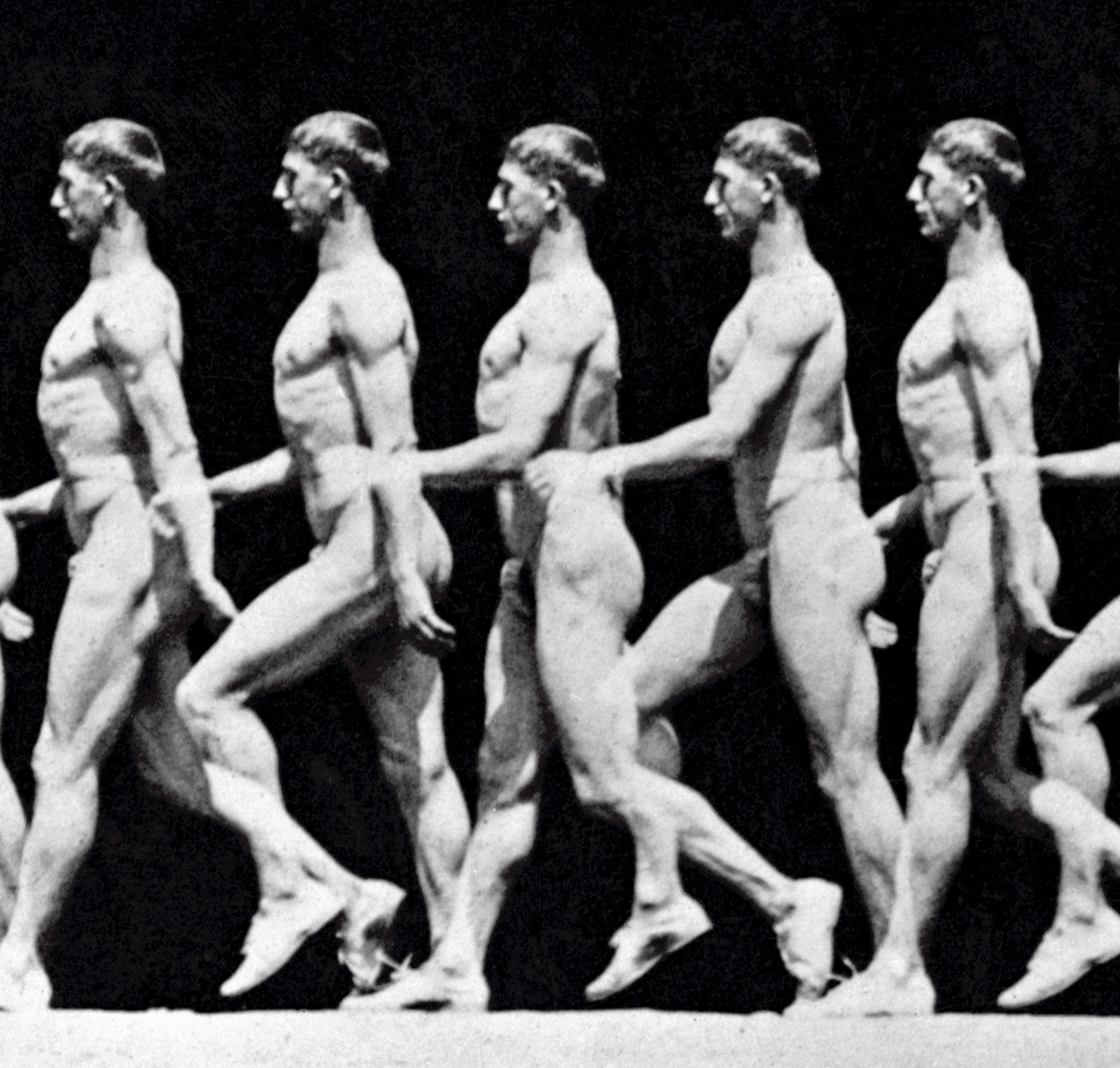By The Crazy Guy
 In order to keep fit and healthy and to prolong our lives, we are supposed to take 10,000 steps a day, say medical experts. “Rubbish!” says The Crazy Guy, not one to blindly accept everything we are told.
In order to keep fit and healthy and to prolong our lives, we are supposed to take 10,000 steps a day, say medical experts. “Rubbish!” says The Crazy Guy, not one to blindly accept everything we are told.
Photo courtesy of Protein2o
Los increíbles beneficios de andar

In her recent article in XL Semanal Raquel Peláez argued that “Caminar te va a salvar la vida” (Walking is going to save your life).
“Several scientific studies have shown that the physical and mental benefits of walking are immediate,” she wrote. “Never mind achieving 10,000 steps a day, every minute spent walking counts.”
This all stems from the fact that our species is unique in that we are upright animals, bi-peds. This allowed human beings to use their fore-legs, ie arms, for other purposes, such as carrying things, making things, using their hands. But on top of this it enabled us to put one foot in front of the other, to walk, which is the most easily achievable movement at our disposal.
Photo courtesy of XL Semanal
Prolong your life
According to scientists, people who walk live longer, have better balance, are happier and more intelligent. Several scientifioc studies have shown that there is no other form of exercise that has such a positive, strengthening and healthy effect on both body and mind as walking.
According to the latest study, carried out by researchers at North Western University in Illinois, USA, and published in the summer of 2023, in people over 40, modest physical activity is the most significant factor influencing health and longevity. Walking, together with a healthy diet and sufficient sleep, can reduce the chance of a premature death by 30 per cent in this age group.
The Unidad de Investigación de Atención Primaria at the University of Bizcaya in Bilbao has found that a small increase in physical exercise, eg fast walking for 50 minutes a week (less than eight minutes a day) reduces by 31 per cent the risk of a premature death amongst people who have led a sedentary life for decades .
On top of that, th e number of steps per day required to start to notice a difference in one’s health, is far fewer than the mythical 10,000 steps. According to scientists at John Hopkins University in Maryland, USA, 4,000 steps are sufficient to start to reduce the risk of premature death. Indeed, this study indicates that 2,300 steps are sufficient to benefit the heart and blood vessels.
e number of steps per day required to start to notice a difference in one’s health, is far fewer than the mythical 10,000 steps. According to scientists at John Hopkins University in Maryland, USA, 4,000 steps are sufficient to start to reduce the risk of premature death. Indeed, this study indicates that 2,300 steps are sufficient to benefit the heart and blood vessels.
During walking the body produces two neurotransmitters, endorphins and dopamine, the happiness hormone and the creative hormone respectively, which combat stress, prevent depression, and regularize sleep patterns. A study by Stanford University (California, USA) supports this argument by their discovery that walking increases creativity in a person by an average of 60 per cent.
As the German philosopher, Friedrich Nietzsche wrote: “A sedentary lifestyle is the real sin against the human spirit.”
Photo of Friedrich Nietzsche courtesy of Wikipedia
Benefits of walking

After 10 seconds - with every step the deep musculature in the body is activated and has a beneficial effect on the vertebrae and disks in the back.
After 5 minutes - even a short daily walk has a positive effect on our life expectancy.
After 11 minutes - you have burned 50 kilocalories, so in a week 350. According to a report by Cambridge University (UK), walking 11 minutes a day can help reduce cardiac disease, cerebro-vascular accidents, and certain types of cancer.
Photo courtesy of Henry Ford Health
After 12 minutes - exposure to 12 minutes of sunshine brings sufficient Vitamin D, vital for the metabolism, absorbing calcium and phosphates in the gut and for healthy bones.
After 20 minutes - great for reducing stress, relaxing muscles and the nervous system, and lowering blood pressure. It also helps us sleep better.
After 30 minutes - walking for half an hour per day for five days a week reduces the risk of heart disease by 19 per cent. The body starts to secrete serotonin, the happiness hormone. According to cardiologists we should walk for 30-40 minutes every day, preferably in the early evening, when our walk can improve our physical capacity, our metabolism and our blood pressure.
After 45 minutes - leading a more active life helps prevent colds. The University of South Carolina (USA) found that after a year of physical activity the average number of colds suffered by previously sedentary people fell by 23 per cent.
After 60 minutes - an hour's walk a day reduces the risk of suffering depression, according to a study by the University of South Australia which lasted 11 years and with 34,000 participants. A Japanese study concluded that a walk in the countryside is preferable to one in the town.
Acknowledgements:
Raquel Peláez
XL Semanal
Tags:
10,000 steps a day, Cambridge University, Crazy Guy, dopaminbe, endorphin, Friedrich Nietzsche, John Hopkins University, North Western University in Illinois, Raquel Peláez, Stanford University, Unidad de Investigación de Atención Primaria, University of Bizcaya, University of South Australia, University of South Carolina, Vitamin D, Wikipedia, XL Semanal,